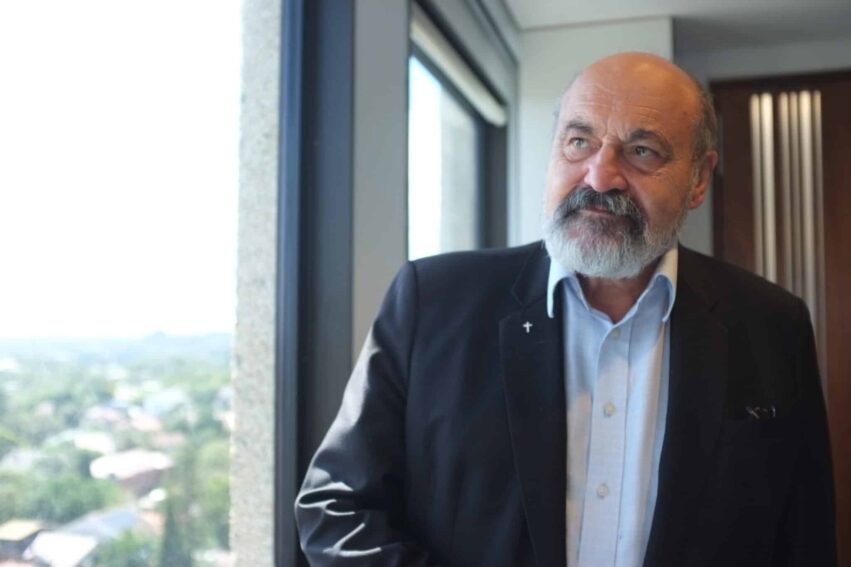
People who report having no religious affiliation are the fastest rising group in Australia and some other parts of the world, but rather than a sign of the church’s decline they point to where God is raising new life.
That was the challenge thrown out to Catholic leaders by Czech theologian priest Monsignor Tomáš Halík during his visit to Sydney this month, but in many respects his insights echoed those of younger priests and lay Catholics on the ground in Sydney.
The 75-year-old author, academic, and pastor of a university parish in Prague has a unique perspective on evangelisation, having ministered in his country’s underground church for 11 years during communist rule, and in the following decade catechising and baptising more than 3000 adults.
After the fall of the Berlin Wall and demise of the regime in 1989 he was secretary general of the Czech Bishops’ Conference and at times worked closely with Popes John Paul II, Benedict XVI and Francis.
He is an admirer of them all, but he is also making his own Pope Francis’ call for the church to be more synodal and extend to the peripheries.
At the invitation of the Diocese of Parramatta, Msgr Halík addressed audiences including Catholic education, parish, youth and diocesan leaders at a number of events including a public lecture and also presented the annual Helder Camara lecture in Melbourne.
After communism ended many Czechs were curious about the church but only felt comfortable at a distance and, like the Gospel figure of Zaccheus, engaged once they felt deeply understood and appreciated, he said.
His success lay in what he describes as a contemplative approach, supported by scripture and tradition but which allows space for people to have sincere questions, doubts and differing points of view.
In contrast, evangelical Christian missionaries and, later, migrant Catholic priests who had not made themselves conversant in Czech art, literature and cinema made little headway in the country now “allergic” to anything that smells like indoctrination.
“Evangelisation without inculturation is just indoctrination,” he said.
“The only way is to discuss things with people and take them very seriously, and in our so-called most atheistic country in the world in our parish our church is always full.
“We are all part of this secular society—we cannot create a ghetto or a sect. I tell them we can speak openly about the faith but I don’t have all the answers for all questions.
“Also I think in the church we know many good answers but we have forgotten the questions, and the answers without questions are dead.”
Rather than a “Benedict Option” of Christian communities seeking to live in parallel with secular culture, Halík said Catholics who want to transmit the faith today need to follow Christ outside the church where he waits among those who say they do not believe.
“Many churches operate like the empty tomb of a dead God, but the Galilee of today where the risen Jesus awaits us may well be the world of the spiritual seekers,” he said.
“Jesus may be outside the church’s institutional and mental structures, and our mission is not to push those people into our existing structures, but to open and enrich them by the experiences of those seekers who have much to tell us.”
Halík’s contemplative European approach was at odds somewhat with the Australian practical temperament, and the monsignor struggled with questions about how openness to the mystery of God’s presence in an unbelieving world could enrich or be enriched by parish life.
The monsignor stressed that he had never ministered in a traditional parish himself and so lacked the requisite experience.
Evangelisation in Australia has increasingly borne fruit within traditional parish or education contexts, through programs like Alpha, youth mission teams in schools, university chaplaincies and support for larger diocesan initiatives such as World Youth Day pilgrimages.
Often many of the participants in these programs are themselves spiritual seekers.
Distinguishing a “stupid kind” of intellectually lazy atheism with an atheism of “protest and pain” Halík said he takes the latter very seriously.
“It is that person who says I would like to be involved but I cannot, I am so wounded by the evil in the world and in my life,” he said.
“We cannot just come to them with our apologetic arguments, but we should embrace those experiences of the silence of God and give it a broader context.”
